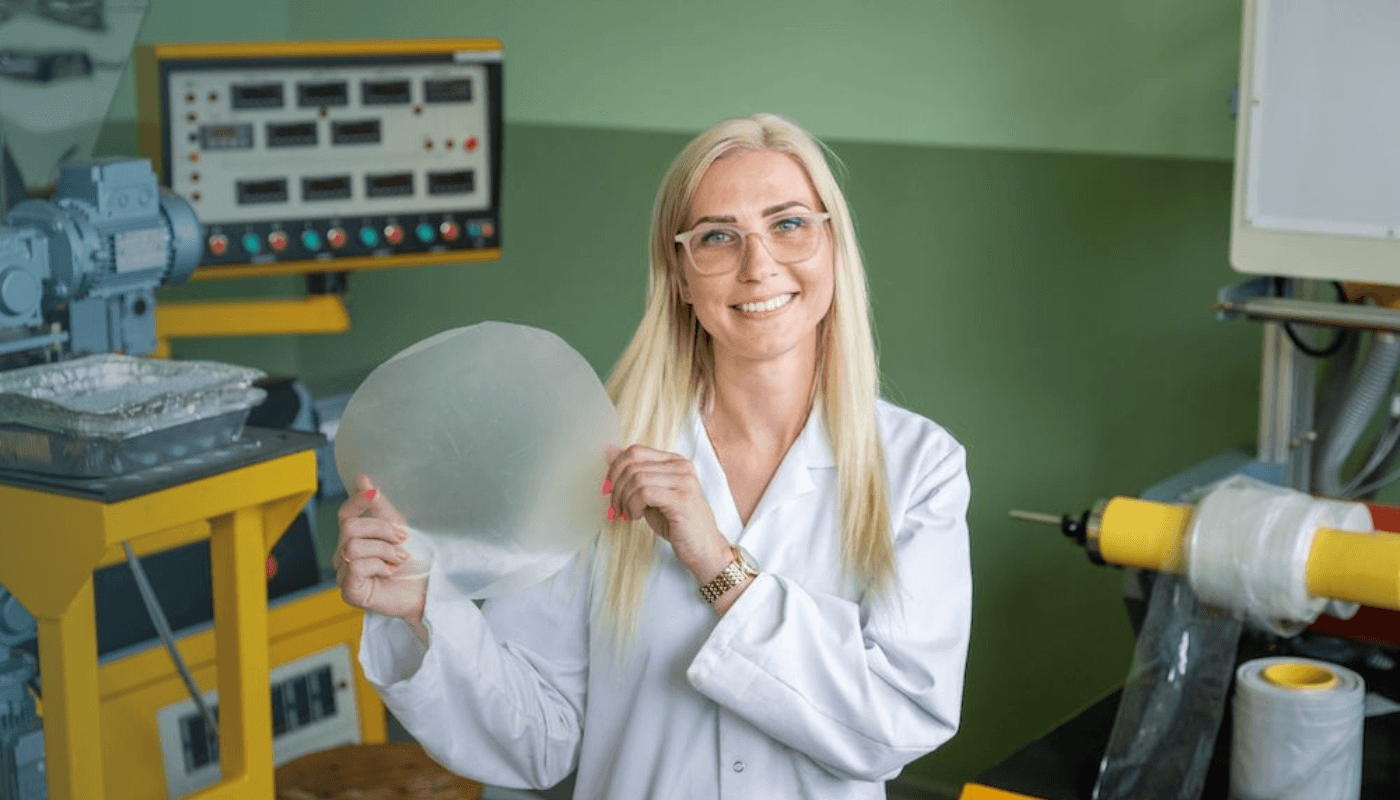RTU student replaces plastic of fossil origin

In order to reduce pollution caused by plastics, the doctoral student of the University of Riga Technical University (RTU) Material Science and Applied Chemistry Faculty Madara Žiganova develops a material of microbiological origin from which plastic packaging can be made, which completely decomposes into the environment without harming it.
In the laboratory of the Polymeric Institute of Polymeric Science and Applied Chemistry, she shows film-like material – it is flexible, partially transparent. It may be folded or otherwise processed for use in the manufacture of packagings.
“Widely used synthetic polymers could be replaced by microbiologically derived ones. I develop microbiological plastic with enhanced flexibility. This could replace everyday bags and disposable products, including for the food industry,” says M. Žiganova.
Microbiological material “produced” bacteria in the reactors: polyester from the energy reserves accumulated in bacteria is formed by the polyhydroxyalconate group. Such material is already industrially produced, but it is fragile. M. Žiganova develops recipe and manufacturing technology to make it look like synthetic plastic – flexible and durable – but at the same time completely biodegradable. She found that the best result could be achieved by adding an environmentally friendly plasticiser. As a result, the material becomes flexible but not human or natural. Polyester of the polyhydroxyalconate group is hydrophilic, which means they bind water. Under the influence of water, the material slowly loses its weight until it dissolves completely. Currently, tests are being carried out in the RTU laboratory to find out how long it is necessary for its complete degradation.
"The method of using plasticiser, mixing, is important. Improving the technological process is everyday for material engineers. This can be simplified compared to spiraling developments: we define the properties of the material, develop technology to improve these properties, test the properties of the improved material, re-develop it, if necessary, and so on until the material is commercially attractive. We are continuing to implement this cyclical process until we reach the desired result,” says M. Žiganova.
She welcomes the possibilities of the Institute of Polymeric Materials: laboratories are equipped with the same facilities as manufacturing companies, and they can be used from the first day of study under the management of experienced teaching staff. It allows you to acquire valuable knowledge that is useful, whether a graduate will link his life with science or choose a career in the industry.